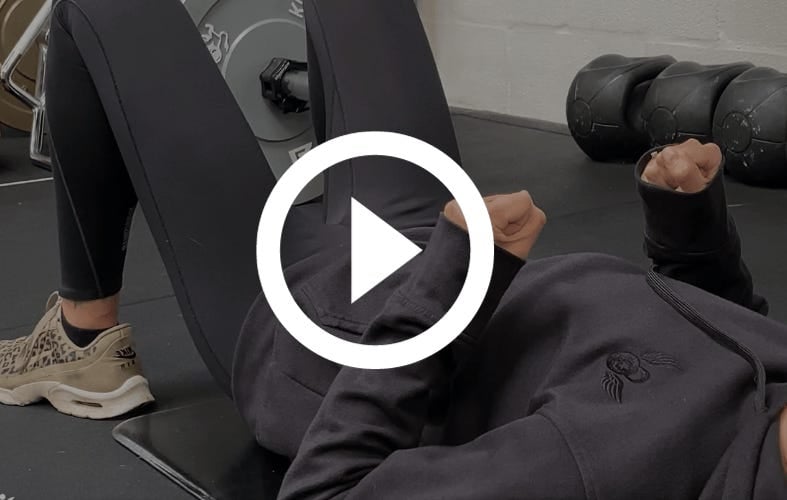
Share this page with friends
Why you should contact a GP if you’re experiencing bladder leaks
Breaking it down
Why you should talk to a GP if you’re experiencing bladder leaks
1. They can help identify any possible underlying causes
We’re not here to scare or worry you, but sometimes bladder leaks can be symptomatic of some underlying health conditions. A GP can help identify the root cause, which is the best place to start for proper treatment. A few common causes are:
Urinary Tract Infections (UTIs): Frequent bladder leaks can be a sign of a UTI, which can need antibiotics to clear the infection. You can actually test for these at home using self-test kits. They usually only take a couple of minutes and they have equal accuracy to NHS testing, so you know you’re getting an accurate result. If positive, you can get subscribed antibiotics through their apps, or book a GP appointment to receive treatment. Sometimes you have to wait weeks to get a doctor’s appointment, so these can be really helpful in the meantime.
Diabetes: High blood sugar levels can damage nerves that control the bladder, leading to incontinence.
Neurological Disorders: Conditions like multiple sclerosis, Parkinson’s disease, or having a stroke can affect nerve signals to the bladder.
By determining the underlying cause, your GP can help you with a targeted treatment plan and get you back on the road to a stronger bladder.
2. They can help you access the right treatment
Every person's body is different. Guess what? Everyone’s bladder is different too. Unfortunately, there’s no one-size-fits-all solution for bladder weakness and urinary incontinence. If you’re new to experiencing leaks, you might be panicking a bit and trying all kinds of things to fix the issue. By sitting down and having a chat with your GP, you might find they recommend something you haven’t tried yet. They’re a valuable hub of medical information and definitely the best people to speak to.
Something that almost everyone can do to some degree is pelvic floor exercises. The most ability-friendly is the Kegel. What is a Kegel? I hear you say. It’s not just a funny word, it’s a really beneficial exercise that you can perform anytime, anywhere, in total secrecy.
How to perform a kegel:
- Empty your bladder before starting
- Imagine you’re urinating and you suddenly need to stop mid-stream (alternatively, imagine you are trying to stop passing wind)
- You should feel a contraction inside your body in the pelvic area
- Hold the contraction for 3 to 5 seconds, then release
- Wait 3 to 5 seconds and then repeat the contraction
- You can perform this stood up, sat down, or lay down
If you’re Kegel’ing away and ready for more, you might want to move onto something a little more specialised. We brought in Natalie Small, Personal Trainer, and postpartum specialist to talk through some exercises and their benefits. Grab yourself a cup of tea, sit back, relax, and watch the video below.

Other things they may recommend are dietary changes, weight loss, fluid management and bladder training. Bladder training involves scheduling toilet breaks and gradually increasing the intervals between them to train the bladder to hold urine longer. Like we said, though, chat to a GP before embarking on a militant bladder training regime or changing up your diet. A GP can help you tailor treatment to your needs.
Everyone’s experience with bladder leaks is different, and a GP can help you develop a management plan that suits your lifestyle and preferences. A personal approach means your treatment is not only effective but also sustainable in the long term. Your GP will consider factors such as your daily routine, activity level, and any other health conditions you may have to create a plan that integrates seamlessly into your life.
3. Education and support
You know the age-old saying, “Knowledge is power.” Well, it’s true. The more you know about bladder leaks and the way your anatomy works, the better you’ll be able to manage it. Owning your condition and doing what you can to fully understand it will give you the confidence you need to go out there and live your best life. A GP can provide valuable education and support to help you manage your condition. Understanding the nature of urinary incontinence, its triggers, and effective coping strategies can empower you to take control of your health. Additionally, your GP can refer you to support groups or counsellors if you need further emotional support.
While we aren’t GPs, we are incontinence experts. We live, breathe and pee incontinence. If you’re looking for some specific help with your incontinence, why not check out our blog? It’s full of useful articles like this one, that can help you get the most out of your experience. You’ll find plenty of information about bladder weakness, incontinence and product recommendations to help you get the best value as well as fantastic everyday solutions.





